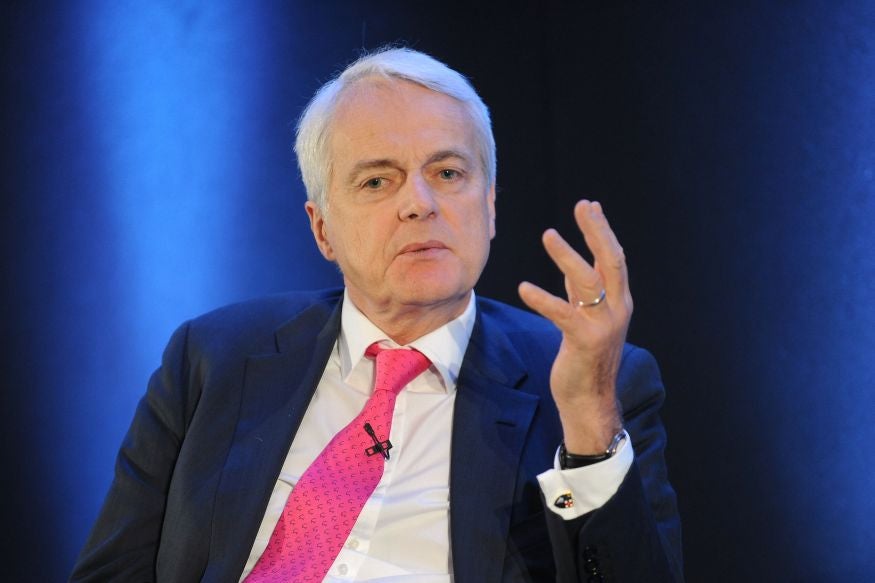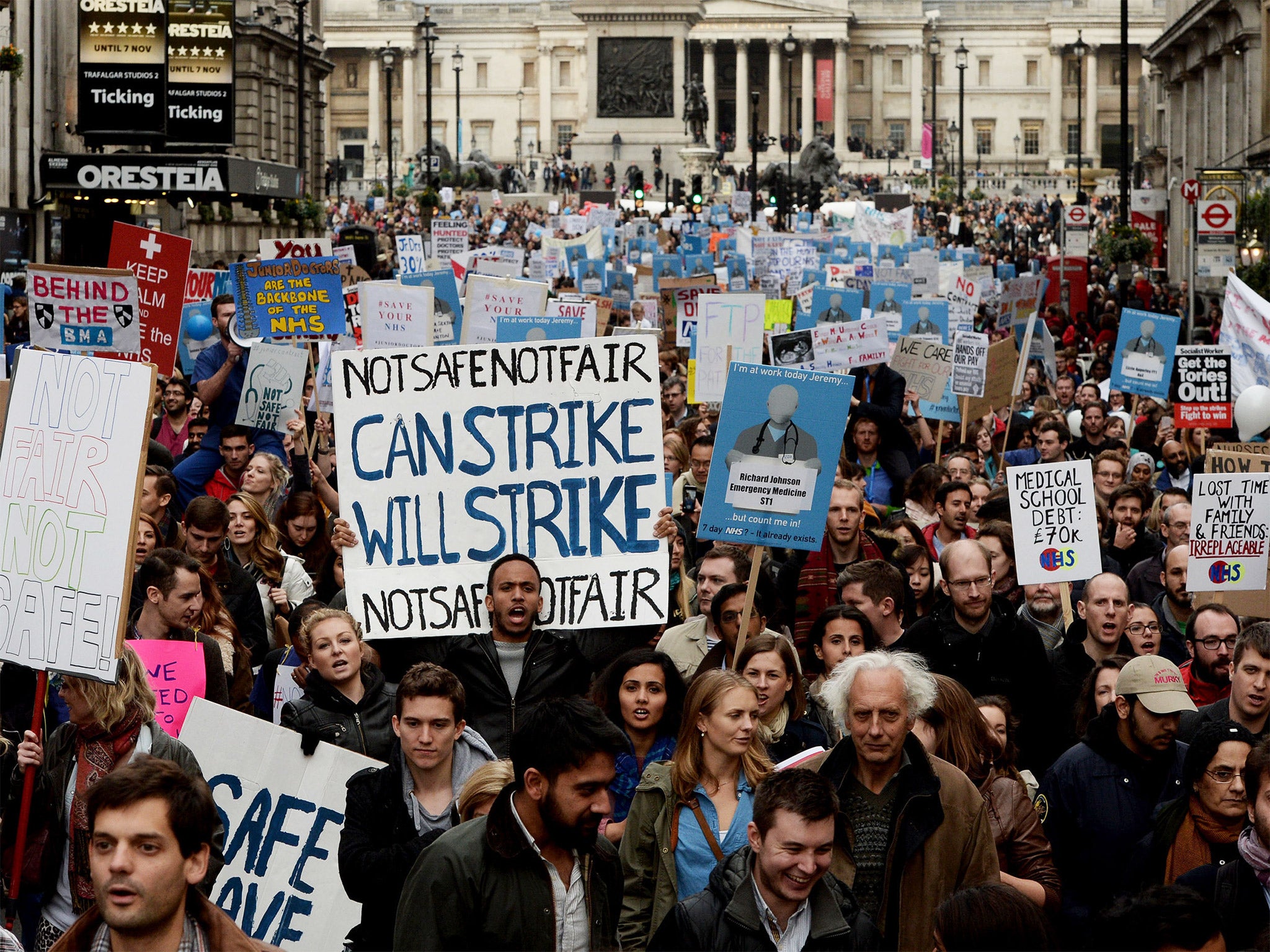NHS junior doctor contracts: UK's leading expert on patient safety Sir Robert Francis urges doctors not to strike
He warns patient safety would be put at risk if three planned walkouts next month go ahead

Your support helps us to tell the story
From reproductive rights to climate change to Big Tech, The Independent is on the ground when the story is developing. Whether it's investigating the financials of Elon Musk's pro-Trump PAC or producing our latest documentary, 'The A Word', which shines a light on the American women fighting for reproductive rights, we know how important it is to parse out the facts from the messaging.
At such a critical moment in US history, we need reporters on the ground. Your donation allows us to keep sending journalists to speak to both sides of the story.
The Independent is trusted by Americans across the entire political spectrum. And unlike many other quality news outlets, we choose not to lock Americans out of our reporting and analysis with paywalls. We believe quality journalism should be available to everyone, paid for by those who can afford it.
Your support makes all the difference.Britain’s leading expert on patient safety has stepped into the bitter row over the new junior doctors’ contracts warning that the future of the NHS is at stake as he criticised both medics and the Government for mishandling negotiations.
Sir Robert Francis QC, who led the public inquiry into the Mid Staffordshire NHS Trust scandal, urged doctors not to strike and said patient safety would be put at risk if three planned walkouts next month go ahead.
In a letter to doctors, seen by the Independent, Sir Robert called the 53,000 junior doctors in England “the backbone of the NHS”. He said they “undoubtedly” have the right to be heard, but warned them to consider the “potential consequences” of strikes on the medical profession.

He said: “It is of course possible that some modification in the contract may be achieved, but at what cost? The history of large scale industrial action suggests to me that it can be a catalyst for the replacement of the relevant service by often less satisfactory alternatives.”
Sir Robert said the “bland assurances” of British Medical Association (BMA) leaders that the strikes will not place the public at risk undermined their argument that the proposed new contract would damage patient safety.
Junior doctors in England are set to take industrial action next month, subject to the outcome of a ballot which closes on 18 November. Medics will walk out of all but emergency care on 1 December before two full walk outs from 8am to 5pm on 8 and 16 December.

Sir Robert, in his response to a petition from 900 junior doctors led by Oxford cardiologist Dr Rachel Clarke, said in the letter: “I urge you not to put your patients at risk by the [strike] action the BMA has announced… I find it difficult to believe such action will be in anyone’s interests.”
However, in a blow to the Health Secretary Jeremy Hunt, Sir Robert said the Government has also mishandled the talks.
He said: “I am sure there have been mistakes made on both sides during the negotiations, but surely the way forward is for dialogue to be resumed and for the employers’ statements of intent to [be] put to the test.
“I suggest that both sides owe a duty to patients to do that: obstructive pre-conditions should not be required by either side. If that is not possible then I suggest that some form of mediation be considered to restore the trust that has obviously broken down.”
Given his role in the Mid-Staffs inquiry and as President of the Patients’ Association Sir Robert’s intervention will be seen as critical in the ongoing row.
The proposed contract will remove financial penalties for hospitals that overwork junior doctors, which medics say have been the only effective safeguards against them working unsafe hours. It will also cut out-of-hours pay for junior doctors working evenings and Saturdays, in exchange for a 11 per cent rise in basic pay.
While a pledge has been made to protect take-home pay until 2019, many medics fear the long-term impact will see them working longer hours for less money. The new contract, which is aimed at improving weekend cover in hospitals, is not backed up by any extra investment in the NHS, leading to fears it will spread the current workforce too thin, leading to overwork and burnout.
Announcing their strike plans this week, the BMA said: “Our dispute is with the Government and our ballot for industrial action is a last resort in the face of their continued intransigence.”
Mr Hunt has maintained that the Government only wants to negotiate, but the BMA says he must drop a threat to impose a contract next year, with or without an agreed settlement, for talks to resume.
A BMA spokesperson said: “No junior doctor, nor the BMA, takes the possibility of industrial action lightly. It is precisely because we believe the government's proposals are bad for patients as well as junior doctors that we are taking this action.
“The BMA has been clear that we want to get back around negotiating table. In order to do this the government must remove the threat of imposition and provide the reasonable assurances we need on a contract that is safe and fair, and delivers for patients, junior doctors and the NHS as a whole.”
A Department of Health spokesperson said: “Sir Robert is crystal clear that junior doctors should not put their patients at risk by taking industrial action. We have made clear assurances on both pay protection and safeguards against excessive hours, and therefore the extreme action that the BMA proposes is totally unwarranted.”
Join our commenting forum
Join thought-provoking conversations, follow other Independent readers and see their replies
Comments